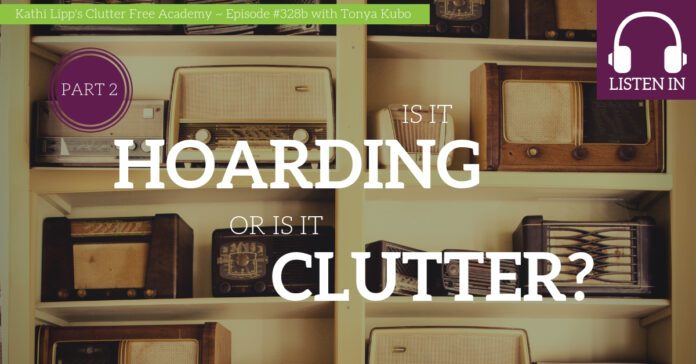You probably think cluttering and hoarding are the same things, so you use the two terms interchangeably. Some people keep a lot of items in a special space but consider themselves collectors, but others see it as junk. When knowing these terms, the differences are based on a few factors.
The Difference Between Hoarding and Collecting
For some, having several things in their home with little to no functionality means something. These items may have visual appeal or hold sentimental value. Then there are niche collectors who may collect unusual items like vintage bottle caps, for fun. These habits are harmless if the items are stored safely and are kept clean. They’re also harmless if the storage containers don’t block entryways or have the potential to cause bodily harm.
Here’s a simple breakdown of how stored items in and around the home can be dangerous for its occupants.
Collecting – usually refers to a series of items, like a doll or stamp collection, that are stored safely or do not take up too much room.
Cluttering – considered a serious habit when it’s ongoing or never moves, according to MedicineNet. However, if it’s just a pile of papers designed for a specific purpose or maintained regularly, there’s usually nothing to worry about.
Hoarding – the act of storing an excessive or unnecessary number of items with the potential to cause harm to anyone in the home. This also includes trash piles or miscellaneous pieces of paper like unused return envelopes. This disorder can also be brought on by stressful events or personal trauma.
Identifying the Problem of Clutter vs Hoarding
Cluttering or hoarding isn’t to be confused with living in cramped quarters or a person who must downsize their living space. In these instances, it takes time to find sensible storage solutions or for the individual to determine what’s worth keeping. Sorting items to be donated or trashed can take a day or less to figure out.
However, if you notice this happening more often than normal, offering to help is a good start. Also, if it’s stated in a friendly way as opposed to being bossy, you may get a positive response. Yet, it’s also important to note if they avoid the subject or become defensive when mentioned. This may be the time to call a hoarding cleanup service.
Knowing When to Get Help
Seeing the difference between hoarding and collecting is everything in a home. While collecting may be a hobby or a side hustle, hoarding is a nonproductive state of mind. Most hoarders are often unrealistic about their purpose in collecting items and storing them indefinitely.
Getting a professional involved is a safer option than tackling the matter alone. According to Jennifer Hanzlick, an expert in hoarding cleanup at Clutter Trucker, the reason is that hoarders become attached to their belongings and normally have a hard time physically parting with these objects. When you remove or snatch something out of their possession, this can agitate them.
Dealing with the Consequences and their Costs
While hoarding disorder has no specific age range, the elderly are often the most likely to be affected. They may hoard because they no longer have the agility or strength to move trash like they once did. Sometimes they may not have family and friends to help them with basic housecleaning.
When homes are filled with junk and trash cans are overflowing, they attract insects and other pests. At this extreme, the hoarder may be hit with fines and other penalties from their city or county. This covers the cleanup crew that disposes of almost everything in the house, regardless of what the dweller wants.
Taking Control and Enjoying Life Again
While not every hoarder is mentally ill, their hoarding may be the result of a mental episode. In other words, being proactive in the early stages makes most hoarding situations more manageable for everyone in the home. Reputable hoarding cleanup services are trained in effective communication and helping everyone involved make progress.
Once the home is free from excess clutter and debris, it’s more visually appealing and functional, and healthier. When dust accumulates on objects over time, the inside air becomes unhealthy and causes respiratory problems. This can lead to a few chronic ailments.
About Jennifer Hanzlick
Jennifer Hanzlick doesn’t just run a clutter cleanup operation, she knows how to reach clients by empathizing. She and her mother learned this firsthand while cleaning out her grandparents’ home. Together, they’ve built a thriving business, Clutter Trucker, that prides itself on understanding the hoarder’s mind and creating an individual plan. Clutter Trucker has several locations across Colorado state.





